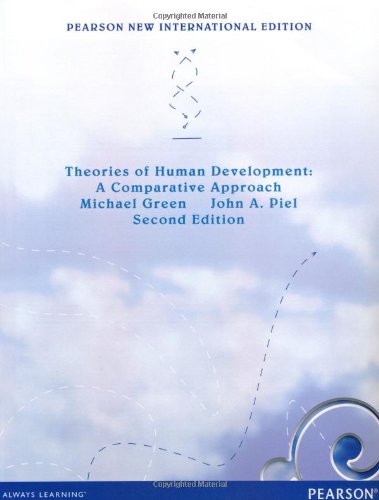Items related to Theories of Human Development: A Comparative Approach

Synopsis
The authors have grouped the theories into three classical "families" which differ in their views relative to the prime motives underlying human nature. They show how theories are specific examples of more general points of view called paradigms. The theories chosen to represent the three paradigms (the Endogenous Paradigm, Exogenous Paradigm, and the Constructivist Paradigm) were selected because they met four criteria:
- importance, as judged by academic and research psychologists
- fertility, as judged by the amount of research the theory has generated
- scope, as judged by the variety of phenomena the various theories explain
- family resemblance, as judged by how well each theory represents its paradigm
The authors present the "paradigm case" in the lead chapter for each paradigm. This paradigm case is the "best example" for the paradigm. The authors explain why paradigm cases are important, and give them more detailed treatment than other theories in the same paradigm.
"synopsis" may belong to another edition of this title.
About the Author
Michael G. Green, Associate Professor, Department of Reading and Elementary Education, College of Education, University of North Carolina at Charlotte.
John A. Piel, Professor, Department of Reading and Elementary Education, College of Education, University of North Carolina at Charlotte.
"About this title" may belong to another edition of this title.
(No Available Copies)
Search Books: Create a WantCan't find the book you're looking for? We'll keep searching for you. If one of our booksellers adds it to AbeBooks, we'll let you know!
Create a Want
